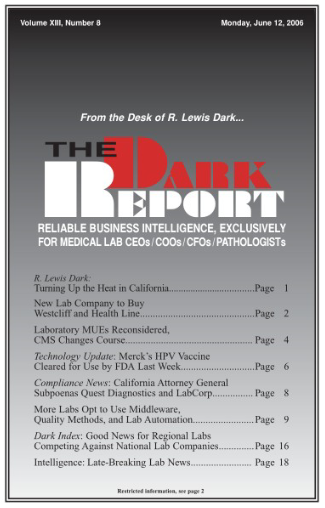CEOSUMMARY: It may bear are moment of common sense. Last month, Medicare officials stated their intent to exclude clinical laboratory and anatomic pathology CPT codes from the “Phase One” implementation of Medically Unbelievable Edits (MUEs). It is a positive step, and comes in response to educational efforts by a consortium which included 60 associations and …
Lab MUEs Reconsidered, CMS Changes Course Read More »
To access this post, you must purchase The Dark Report.


